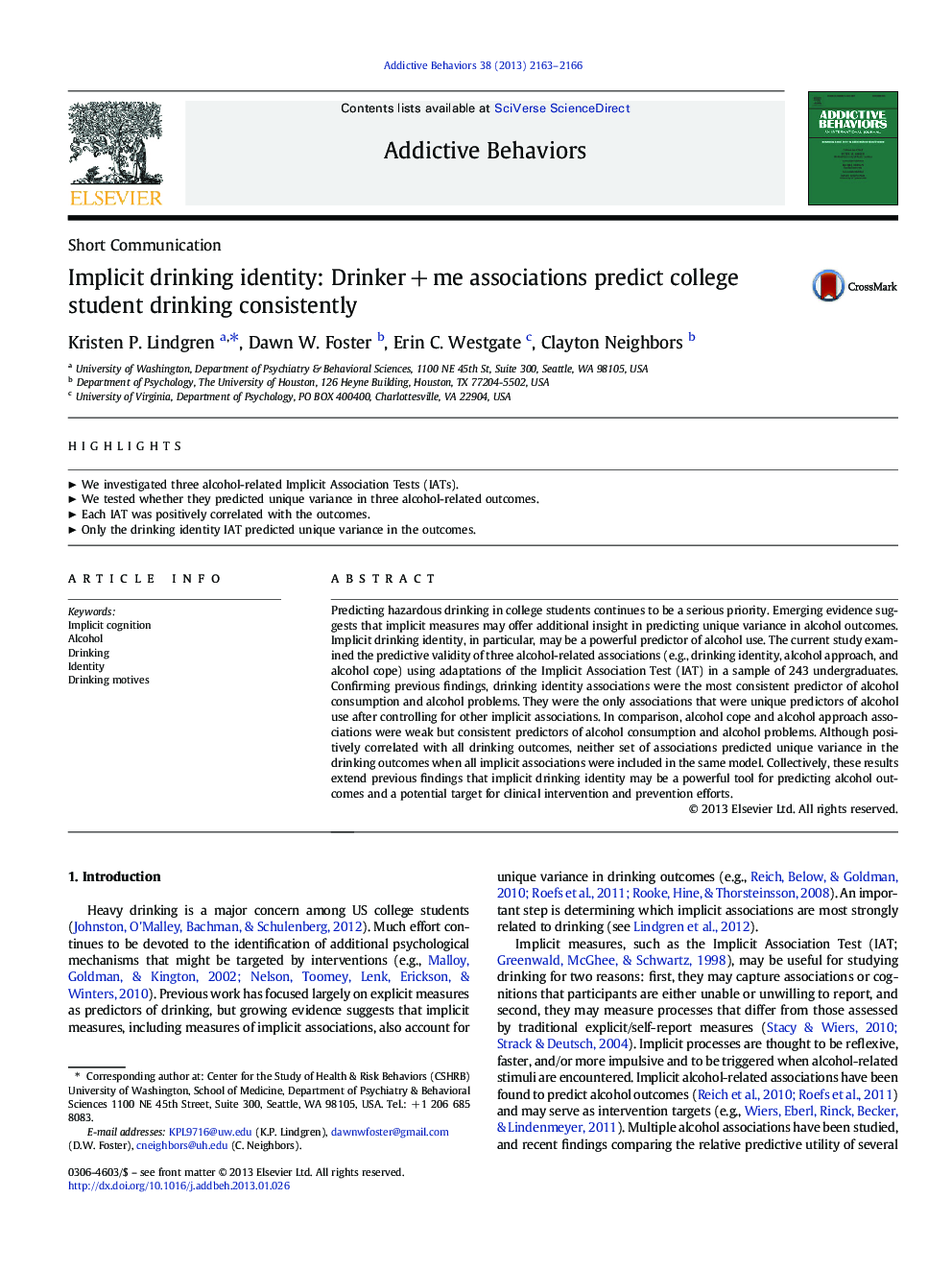| Article ID | Journal | Published Year | Pages | File Type |
|---|---|---|---|---|
| 899109 | Addictive Behaviors | 2013 | 4 Pages |
Predicting hazardous drinking in college students continues to be a serious priority. Emerging evidence suggests that implicit measures may offer additional insight in predicting unique variance in alcohol outcomes. Implicit drinking identity, in particular, may be a powerful predictor of alcohol use. The current study examined the predictive validity of three alcohol-related associations (e.g., drinking identity, alcohol approach, and alcohol cope) using adaptations of the Implicit Association Test (IAT) in a sample of 243 undergraduates. Confirming previous findings, drinking identity associations were the most consistent predictor of alcohol consumption and alcohol problems. They were the only associations that were unique predictors of alcohol use after controlling for other implicit associations. In comparison, alcohol cope and alcohol approach associations were weak but consistent predictors of alcohol consumption and alcohol problems. Although positively correlated with all drinking outcomes, neither set of associations predicted unique variance in the drinking outcomes when all implicit associations were included in the same model. Collectively, these results extend previous findings that implicit drinking identity may be a powerful tool for predicting alcohol outcomes and a potential target for clinical intervention and prevention efforts.
► We investigated three alcohol-related Implicit Association Tests (IATs). ► We tested whether they predicted unique variance in three alcohol-related outcomes. ► Each IAT was positively correlated with the outcomes. ► Only the drinking identity IAT predicted unique variance in the outcomes.
